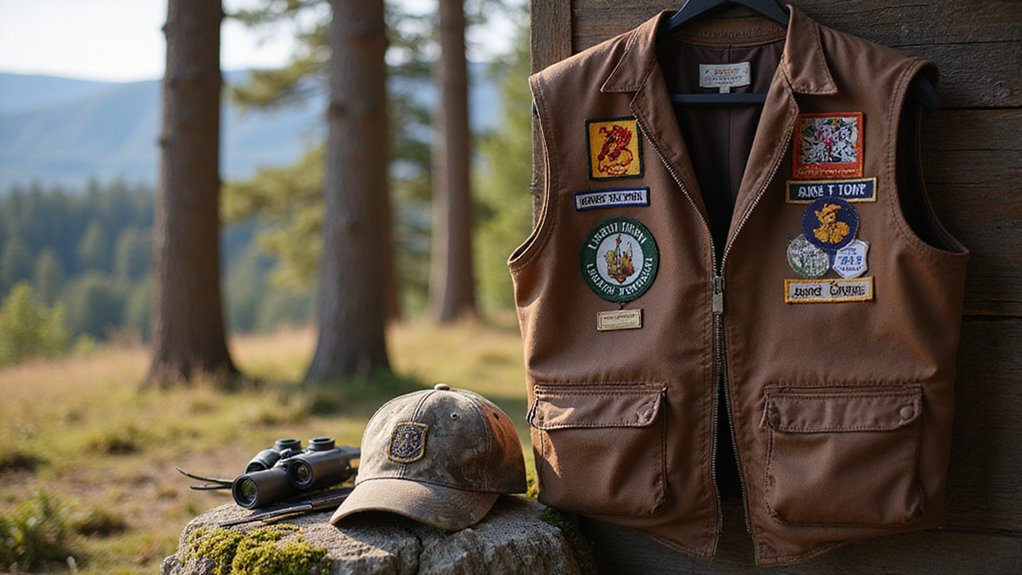Hunting laws play a vital role in ensuring the sustainability of wildlife and ecosystems. If you’re planning to hunt, it’s essential to understand the specific regulations in your state, as they can vary and change frequently. Knowing what’s required for a hunting license and identifying protected species are just the beginning. Have you considered how these laws impact your hunting experience and responsibilities? Let’s explore the details to keep you compliant and ethical in the field.
What Are Hunting Laws and Why Are They Important?
Hunting laws are essential rules that govern how, when, and where hunting can occur. These regulations help maintain wildlife populations, ensuring sustainable practices for future generations.
By adhering to these laws, you not only avoid legal penalties but also contribute to conservation efforts. They dictate aspects like hunting seasons, bag limits, and permissible methods, protecting both animals and habitats.
Ignoring these laws can lead to overhunting or ecological imbalance. Understanding and respecting hunting laws is vital for responsible hunters.
Ultimately, these rules create a fair and ethical hunting experience, fostering respect for nature and the wildlife that inhabit it.
How to Understand State-Specific Hunting Regulations
Understanding the specific regulations in your state is key to staying compliant and responsible while hunting.
Start by visiting your state’s wildlife agency website, where you’ll find essential information on seasons, bag limits, and designated hunting areas. Make sure to read the regulations thoroughly, as they can change annually.
Consider joining local hunting groups or forums to gain insights from experienced hunters. Additionally, attending workshops or information sessions can deepen your understanding.
Always keep a printed copy of the regulations with you while hunting, so you can reference them if needed.
Stay informed, and you’ll enjoy a safer, more successful hunting experience.
What’s Required for Obtaining a Hunting License?
What do you need to do to obtain a hunting license? First, check your state’s specific requirements, as they can vary widely.
Typically, you’ll need to complete a hunter safety course, which teaches essential skills and safety protocols.
Next, gather necessary identification documents, like a driver’s license or state ID.
After that, you can usually apply online, by mail, or in person at designated agencies.
Be prepared to pay a fee, which often varies by age and residency status.
Finally, make sure you’re aware of any additional requirements unique to your state, like background checks or residency proof.
How to Identify Protected Species and Seasons
How can you guarantee you’re not accidentally hunting protected species? Start by researching local regulations and identifying which animals are classified as protected in your area.
Use field guides or apps to familiarize yourself with these species, focusing on their physical characteristics and habitats. Pay attention to seasonal restrictions, as certain species may be off-limits during specific times of the year, like breeding seasons.
Always check for updates on regulations, as they can change. If you’re uncertain about a species, err on the side of caution and avoid hunting it. Being informed keeps you legal and contributes to conservation efforts.
What Are the Legal Restrictions on Hunting Methods?
Knowing which species you can hunt is just the beginning; the methods you use are equally important. Many states impose restrictions on hunting techniques to guarantee safety and sustainability.
For instance, certain firearms, traps, or baiting methods might be prohibited. You should also be aware of regulations regarding hunting with dogs or using artificial lights at night. Additionally, some areas may have specific rules about the use of bows or crossbows.
Always double-check local laws and guidelines to avoid hefty fines or penalties. Following these regulations not only keeps you legal but helps protect wildlife populations for future generations.
How to Stay Updated on Changes in Hunting Laws
As hunting laws can change frequently, staying informed is essential for every hunter.
Start by checking your state’s wildlife agency website regularly, as they often post updates and changes. Subscribe to newsletters or alerts specific to hunting regulations in your area.
Join local hunting clubs or forums where members share news and experiences. Social media can also be a helpful resource—follow relevant organizations for real-time updates.
Finally, consider attending local meetings or workshops focused on hunting laws.
Why is Ethical Hunting Essential for Conservation?
While many people view hunting merely as a sport, ethical hunting plays an essential role in conservation efforts. By following regulations and practicing sustainable hunting, you help maintain wildlife populations and their habitats.
Ethical hunters contribute to funding conservation programs through licensing and fees, which support habitat restoration and species protection. When you hunt responsibly, you also promote a balance in ecosystems, preventing overpopulation and ensuring healthy animal communities.
Furthermore, ethical hunting fosters respect for nature, encouraging others to appreciate and protect wildlife. In this way, your actions in the field can lead to positive outcomes for the environment.
What Should You Do If You Encounter Law Enforcement While Hunting?
If you find yourself face-to-face with law enforcement while hunting, staying calm and respectful is essential.
Immediately cease any activity and place your hands in plain sight. Greet the officer politely and provide any requested documentation, like your hunting license and identification.
Answer questions honestly, but remember you have the right to remain silent if you choose. If you believe an error’s occurred, express your concerns respectfully rather than becoming confrontational.
After the encounter, review the situation to learn from it. Following these steps can help guarantee a smooth interaction and keep you on the right side of the law.
